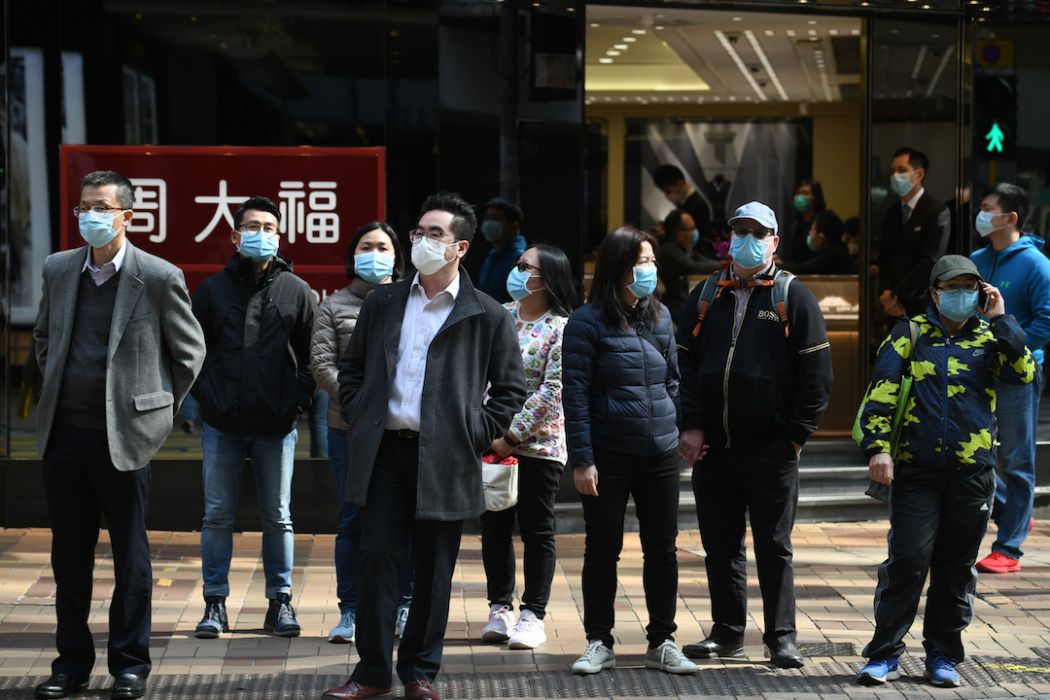Hong Kong’s former health minister Yeoh Eng-kiong has said that wearing face masks has limited effectiveness, as the city has seen no new local coronavirus infections for days. But authorities urged the public to remain vigilant while saying there is no need to make masks mandatory.
Speaking at a forum on Monday, Yeoh, a professor at the Chinese University of Hong Kong, said masks should be worn in crowded areas, or when people have a cold or cough. He said he does not otherwise wear face masks now, and only does so to be “polite.”

“Hong Kong does not have local cases at all, wearing face masks will not be very effective. Some citizens are worried about invisible patients – that’s very personal. The most important thing is to have manners. When you have a cold, cough or feeling unwell, you have to wear a mask,” Yeoh said.
“Of course [I] would wear when in crowded areas, because citizens would be worried – not because I’m scared. Instead, [I’m] afraid that citizens would think it is not very polite,” he added.
Yeoh led the former Health, Welfare and Food Bureau during the SARS outbreak in 2003, which killed more than 300 people in Hong Kong. He came under fire for downplaying the severity of the epidemic and for being accused of lacking communication skills as a policy secretary. He eventually resigned in 2004.

Hong Kong recorded an additional imported case of Covid-19 on Monday, pushing the total number of infections to 1,040. It was the 15th consecutive day that the city saw no cases of local infection.
Keep masks on
At a press conference on Monday, Chuang Shuk-kwan, head of the communicable disease branch of the Centre for Health Protection (CHP), warned that there could still be hidden transmitters in the community. Citizens should keep their face masks on and should not relax so soon, she said.

Earlier last month, Singapore imposed a rule to make masks compulsory outside home, in a bid to curb its surging infections. Chuang said such measures were not necessary in Hong Kong, as most citizens wear a mask voluntarily.

“The percentage of those wearing masks in Hong Kong is quite high – like 97, 98 per cent. It may not be necessary to ask for compulsory by legal measures,” she said.
When asked by HKFP if she was concerned about a spike in infections if mainland border restrictions were relaxed, Chuang said she trusted the data from China.
Reusable masks for all
Last Sunday, Hong Kong leading microbiologist Yuen Kwok-yung revealed the government’s plan to distribute reusable masks to all citizens. According to local media citing sources, the manufacturer is the Hong Kong Research Institute of Textiles and Apparel Limited (HKRITA), funded by the Innovation and Technology Commission (ITC) and hosted by the Hong Kong Polytechnic University.
The masks may be washed and reused 60 times, with antibacterial functions. They can also filter particles. According to the ITC’s reply to media enquiries, the preparation work has entered the final stage and details will be announced as soon as possible.

HK01 reported that the ITC has plans to distribute the masks via an online registration system and citizens will pick up the masks at the post office or other designated venues.
“Maybe the government doesn’t want me to say it, but I did – really sorry about that… I’m very happy,” Yuen said during a television programme on Sunday.
In February, the government earmarked HK$800 million from the Anti-epidemic Fund to sponsor the research, design and production of reusable face masks, but no details were made available. Chief Executive Carrie Lam said in March that there was some progress in the production of reusable masks, and said details would be announced in April.
